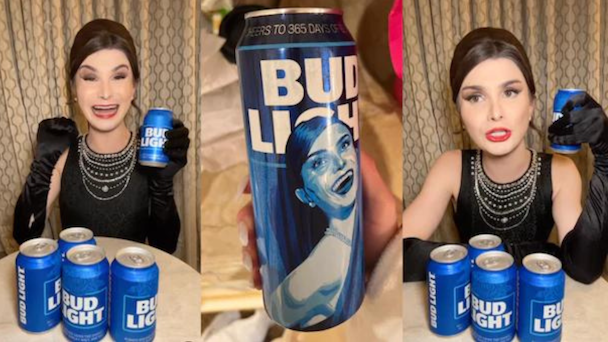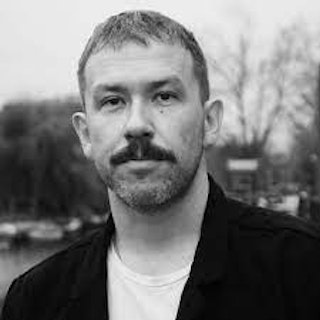At Cannes we learned that agencies are showing up harder than brands for Pride
The advertising festival proved that the biggest crisis facing brands right now is the panic and confusion over how to show up for LGBTQ+ rights. Simon Hatter, founder of Hatter, believes agencies are handling the crisis much better than their clients.

/ Credit: Dylan Mulvaney via Instagram
It was unsurprising that the recent Bud Light fiasco (Anheuser-Busch’s disastrously ill-thought-out and ill-executed Bud Light partnership with trans influencer Dylan Mulvaney) was a big topic of conversation at the festival. As was the Target debacle (the US mega-brand recently decided to remove lots of LGBTQ+ merchandise from its stores in response to a backlash). What was surprising though was how few brands took the opportunity to step up and show how they’d do things differently.
Considering the context, there were remarkably few specific activations, panels or events dedicated to addressing the issue. Thank goodness then for the agencies willing to step into the breach.
Advertisement
Are agencies getting frustrated with brand apathy and inaction?
At Cannes, Bospar – a ‘politely pushy’ tech PR and marketing agency – built ‘Club Courage’, a pop-up nightclub for queer festival visitors after discovering that there weren’t any specifically-designated safe spaces for the community there. “This comes at a time when brands supporting the LGBTQIA+ community are under siege and there’s a need for corporate courage,” Bospar Principal Curtis Sparrer said.
Meanwhile, Dentsu hosted a discussion called ’Pride was always a protest’, emphasizing the importance of advertising as a tool in continuing the fight for equality and acceptance. And LGBTQ+ rights advocacy organization Glaad and marketing data and consumer analytics agency Kantar announced its new Advertising Visibility Index, which tracks how many ads feature the LGBTQ+ perspective. (Smart brands will take that as a warning that they’re going to be held to account.)
So where were the brands?
Advertisement
Brands not showing up – or showing up in the wrong way
More than a dozen CMO-types were asked by The Drum how they are navigating anti-trans backlashes. None agreed to go on the record in response.
You’d think brands would be falling over themselves to condemn inauthentic campaigns and cowardice. And yet, maybe the silence in the ranks isn’t that surprising when considering that Anheuser-Busch InBev scooped the Cannes Lions Creative Marketer of the Year award (the only company to ever receive the accolade twice). Yes – the same company in charge of the Mulvaney partnership and backlash reaction, a catalog of errors said to have cost the company a cool $20bn.
Then there’s Google, a brand that did show up on this issue at Cannes but is now battling claims of Pride-washing. “Show solidarity and support for the LGBTQ+ community and celebrate another successful Festival year,” was its official Cannes Lions blurb about its Pride event – a statement that seems ironic now considering the brand’s quick about-face in San Francisco this week. CNBC reports that Google has distanced itself from the drag show planned for its Pride finale after an internal employee petition circulated claiming religious discrimination on the grounds that drag sexualizes and disrespects Christian co-workers. Apparently, the event is still open to the public, but is no longer a Google-recognized DE&I event, while another experience has been set up for employees.
Like Target, I wonder how Google’s LGBTQ+ staff feel about this. Probably the same as the marketing executives who carried the can for the Dylan Mulvaney partnership at Anheuser-Busch.
I’m sure they feel confused and worried. Especially considering that Dylan Mulvaney, her supporters and said Bud Light marketing execs have all received death threats directly related to the issue, as has Erik Carnell, the designer of some of Target’s removed merchandise.
Suggested newsletters for you
It’s a question of safety, not just authenticity
A lot of Pride conversations surrounding brand allyship focus on authenticity and credibility when it’s actually a question of safety. Brands must be brave when it comes to allyship, acknowledging what’s at stake. Anti-LGBTQ+ violence hit its highest point in a decade in Europe and Central Asia in 2022, while UK Home Office statistics from that year show hate crimes against people based on sexual orientation doubled in four years. Across the pond, over 520 anti-LGBTQ+ bills have been introduced in state legislatures (a record), with 70 being enacted in law (another record).
It’s as Dylan Mulvaney herself said in a video just this week: “For a company to hire a trans person and then not publicly stand by them is worse, in my opinion, than not hiring a trans person at all... It has serious and grave consequences for the community."
The LGBTQ+ community is in danger and brands have a responsibility to acknowledge that and the extraordinary role they can play in influencing positive public discourse. This attitude of brushing it under the rug and hoping it’ll go away is in danger of becoming the norm rather than the exception. Something Greg Wolny, chief activation officer at Code3, picked up on when he told Digiday that he’d heard very little on how to properly address the issue since the festival started: “There’s been a lot of hypocrisy around that. People have stepped away from it.”
Before we can even start conversations around how brands can authentically promote Pride and be proper allies, people need to be willing to address the elephant in the room in the first place: that the current trend of hoping it all quiets down may cost lives, that the LGBTQ+ community isn’t going anywhere, it needs support and this is an absolutely crucial moment to step up, not away.
Brands must be brave – but the community understands bravery
Yes, taking a meaningful long-term position on Pride is brave for brands – but the LGBTQ+ community understands bravery. It has been fighting for a long time. Taking a stand is showing support for people who have spent their lives – at great personal and professional cost – fighting for representation and acceptance. Put in the work and get it right and you’ll find a loyal community willing to support you right back.

